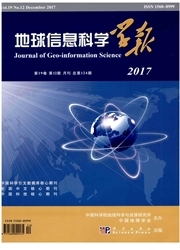

 中文摘要:
中文摘要:
本文以LandsatTM多光谱影像为主要数据源,获取了天津港区1987—2010年4期土地利用数据,引入单一土地利用类型动态度、综合土地利用类型动态度、转移矩阵和土地类型空间格局重心4种土地利用变化指数模型,在GIS支持下定量地分析了天津港区1987—2010年土地利用类型转换的方向、程度、时空格局差异和扩张模式。结果表明:1987—1995年天津港的建设处于改革开发之后的探索阶段,土地利用类型变化的程度不高;1995—2003年天津港稳步拓展,港口区域建设用地向北迅速扩张;2003—2010年天津港步入以港区外迁为特征的专业化发展阶段,土地利用类型剧烈变化。20多年来,天津港在空间形态上呈现沿海岸线先向北向陆,后向南向海的扩张模式,侵占水田、滩涂和填海造陆是天津港港口建设用地扩张的主要途径,同时区域还存在大量非理性的圈海养殖和围海造田现象。研究认为港口专业化发展、宏观和微观政策,以及个体目标驱动是影响天津港区土地利用时空格局变化的主要因素,关注生态、经济与区域的和谐发展,通过优化港口功能布局,加快以生态安全为目标的土地利用结构调整,是实现港口可持续发展的必经之路。本文对于充分认识港口发展规律,保护宝贵的港口岸线资源和合理规划港口区域土地资源都具有重要的意义。
 英文摘要:
英文摘要:
In this paper, land use data of Tianjin harbor of four periods from 1987 to 2010 was obtained based on Landsat multispectral TM images. With the introduction of dynamic index of each land use type,dynamic index of land use change, conversion matrix and spatial pattern center of land use type, land use conversion in Tianjin harbor was analyzed quantitatively from the aspects of direction, extent, spatio-tem- poral differences and expansion pattern by support of GIS software. The results indicated that: from 1987 to 1995, Tianjin harbor was in the exploration stage after reform and opening-up with a low level of land use change; from 1995 to 2003, Tianjin harbor developed steadily while the construction land of port area expanded rapidly to the north; from 2003 to 2010, Tianjin harbor stepped into the specialization stage characterized by migration outside and land use type changed drastically during this period. For more than 20 years, Tianjin harbor presented an expansion pattern of along the coastline first to the north and land, then to the south and sea. Occupying of paddy fields and beaches, and sea reclamation are the main ap proaches of construction land expansion in Tianjin harbor. Meanwhile, extensive and irrational sea recla- mation for land and aquaculture is prevalent in the study area. Research considered that port specialization development, national and regional policies and individual driving force were the principal factors that caused land use change of Tianjin harbor from the perspective of time and space. Harmonizing relationship between ecology, economy and regional development, optimizing port layout and promoting land use structure adjustment with the aim of ecological safety are the inevitable way to sustainable development. This article is of important significance in the full realization of port development pattern, the protection of precious port coastal resources, and the reasonable planning of land resources in port areas.
 同期刊论文项目
同期刊论文项目
 同项目期刊论文
同项目期刊论文
 期刊信息
期刊信息
